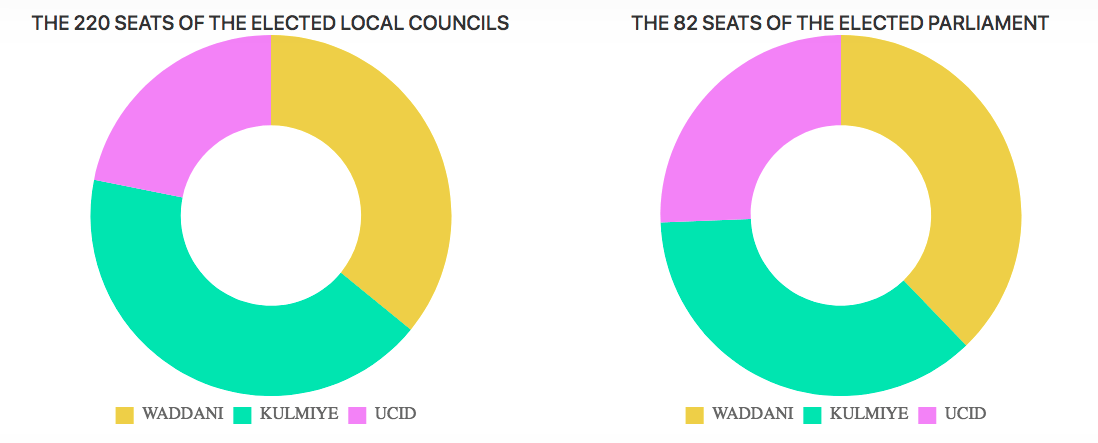For the first time in the history of the Republic of Somaliland, opposition emerges victorious in the battle for major, A-class cities.
Burao, the regional capital of Togdheer and the largest livestock market in Somaliland, was the last to fall into opposition hands.
Duqa cusub ee Burco. pic.twitter.com/Ito8FNp5TJ
— Faysal Mohamed Aden Fifa (@FaysalFifa12) June 20, 2021
Out of the 7 A-class cities of Hargeisa, Gabiley, Berbera, Erigavo, Burao, Borama, and Las Anod, the government and its ruling party, Kulmiye, only managed to secure leadership of Gabiley and Berbera on the east and west of the capital city, Hargeisa.
Moreover, the two opposition parties, Waddani – the Somaliland National Party – and UCID – the Justice and Welfare Party – did not only defeat KUlmiye – the Somaliland Peace and Unity Party – in the contest for each council’s top post but they, between them, also denied Kulmiye of the deputy-mayorships.
Kulmiye has to reconcile itself with second-best, B-class and C-class towns.

Between them, the two opposition parties managed to win 127 seats out of a total of 220 council seats of 20 poll districts. Kulmiye got 93.
552 candidates contested in the race for council seats where 246 fiercely tussled for the 82-seat parliament..
With the councils’ elections out of the way, the government and opposition are gearing for a major showdown at the parliament house.
Waddani is fielding its former first deputy-chairman, Abdirizak Khalif, a formidable content der and an articulate, popular politician.
Kulmiye is fighting to put Professor Yassin Mohamoud Hiir ‘Faratoon’ – the former minister for Foreign Affairs and International Cooperation on the chair of House Speaker. Professor Faratoon has garnered the greatest number of votes in the Sool region where Khalif also belongs.
The former minister has, also, to his credit, a most fruitful term at the helm of the ministry of foreign affairs during which foreign diplomacy has achieved the greatest feats in recent years, including new friendships, agreements and pacts with Taiwan, Kenya, Guinea Conakry, Malawi, Zambia and many more.
Out of the 82 members of the lower house of the bicameral parliament, 52 won on opposition tickets.
No wonder, blows – but no falls yet – could be heard openly but not seen in the no-holds-barred wrestling match between the government and the opposition for the 3 top posts of the parliament going on beyond the curtains drawn on the ring.
Thus far, following the difficult but adroitly handled double election of 31 May 2021, the government has only the credit it gained for non-interference of the elections and the impeccable way it handled them for consolation, according to observers.



























